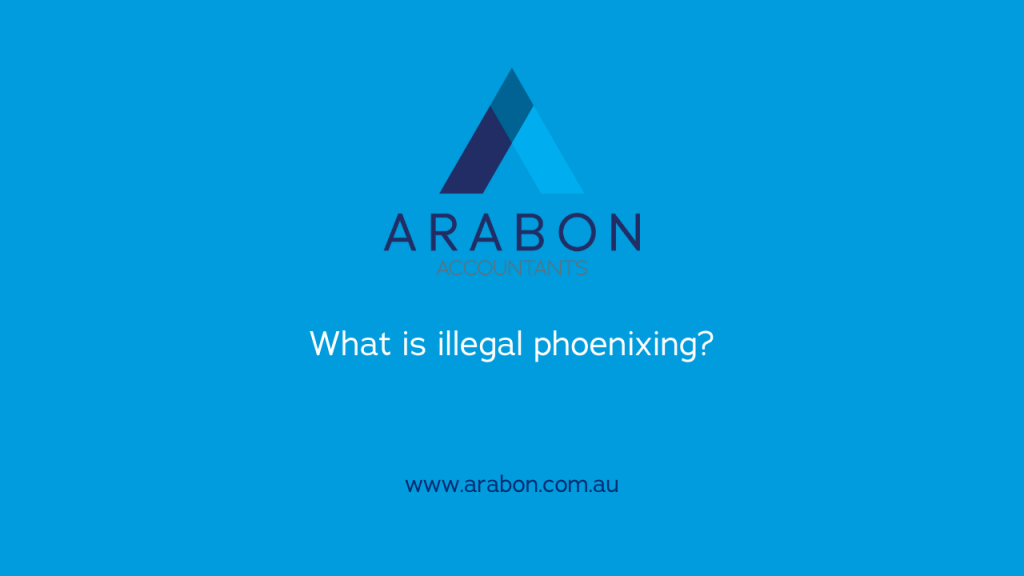With the introduction this month of the compulsory Director ID Number (DIN), it is timely to take a closer look at what is illegal phoenixing, a practice that the DIN aims to target.
Illegal phoenixing involves company directors transferring assets of an existing company to a new company, leaving the old company with the existing debt.
The old company is then placed into liquidation, but as the company no longer has any assets there is nothing to be used to cover these debts. If the liquidator is appointed, there are no assets to recover, which means creditors cannot be paid.
Once the assets are transferred to a new company, the directors continue to operate the business. This gives the new business an unfair advantage when competing for work, because they have less debt and lower operating costs.
Illegal phoenix activity directly impacts sub-contractors, creditors and employees as they are left unpaid and out of pocket. It also indirectly impacts the broader community because the company avoids having to pay tax, while at the same time Government often has to subsidise outstanding employee entitlements of liquidated companies.
The ATO has noted that there are many indications that suggest illegal phoenix activity, including:
- the company fails and cannot pay its debts
- the company changes its name to its Australian Company Number (ACN) and a new company is registered, often with a similar name to the old company
- the directors or former directors transfer the assets from the old company to the new company for less than market value
- the new company operates the same or similar business as the old company, sometimes from the same premises, using the same assets and employees
- the new company often uses the same bank account, advertising material, websites or contact details as the old company
- the people involved in managing the old company control the new company.
Phoenixing has a prolific and detrimental impact on the Australian economy. A 2018 report estimated that illegal phoenixing costs the Australian economy between $2.85 and $5.13 billion annually. It estimated the following annual costs of phoenix activity:
- The cost to business from unpaid trade creditors is between $1.162 billion to $3.171 billion.
- The cost to employees, lost through unpaid entitlements is between $31 million to $298 million.
- The cost to the government from unpaid taxes and compliance costs is more than $1.66 billion.
Penalties for illegal phoenix activity
Illegal phoenix activity can involve breaches of directors’ duties, fraudulent concealment or removal of assets and fraud by company officers under the Corporations Act 2001. Penalties include large fines and up to 15 years’ imprisonment for company directors and secretaries.
Each person involved in the activity, including the pre-insolvency adviser, valuer, liquidator and dummy directors, may be subjected to the same penalties as a company director or secretary if they aided, abetted, counselled or procured a director to engage in illegal phoenix activity or creditor-defeating dispositions.
How does the DIN aim to target phoenixing?
The DIN is a unique identifier that a director will keep forever, enabling regulators to better track directors of failed companies who use fictitious identities.
The concept of a unique ID number, and its potential to combat illegal phoenix activity, has been discussed in government and business circles extensively and received support in the 2017 Phoenix Research Team report Recommendations on Detection, Disruption and Enforcement which recommends the introduction of a mandatory DIN and greater transparency around the background of company directors.
Now it has finally been introduced as a legal requirement of directors, it’s hoped the DINs will help regulators deter and detect illegal phoenix activity that leaves creditors unable to recover debts and costs the Australian economy billions of dollars each year.
For more information about the Director ID Number and how to apply, please read here.






